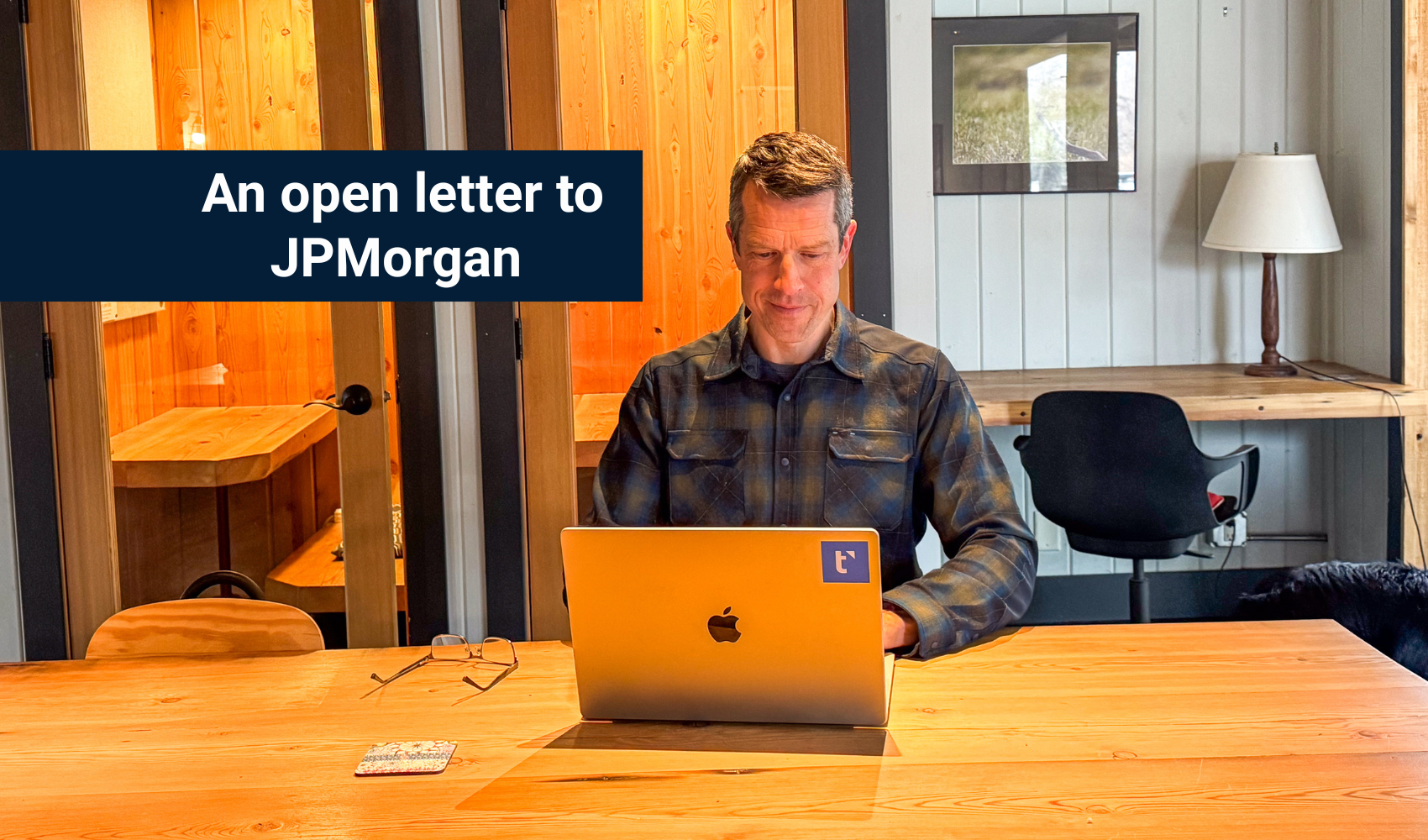I began my career at JPMorgan, working at headquarters on 60 Wall Street in my first job out of college. These were formative years, and I’ve been a proud shareholder and customer ever since. Jamie Dimon’s annual reports to shareholders remain must-reads for me, consistently rich with insight on business, markets, and leadership.
John Pierpont Morgan once used his credit and reputation to prevent a complete collapse of the U.S. economy during the Panic of 1907. That decisive action to provide liquidity while others froze ultimately inspired the creation of the Federal Reserve shortly thereafter. JPMorgan has played similar stabilizing roles during the Great Depression and the 2008 financial crisis.
Today, however, JPMorgan is making a mistake that will hurt Americans and undermine the progress made toward financial transparency and consumer control. Recently, JPMorgan announced it will no longer provide free, easy access for customers to retrieve and share their own banking data.
The history of the modern banking system has been one of steady progress toward transparency for everyday Americans. In the 1990s, Quicken pushed banks to make transaction data downloadable in standardized formats for use with their software. Banks also embraced PDFs to deliver digital statements instead of printing and mailing them.
Five years ago, the industry took another important step forward with the adoption of open banking, a reliable and secure way for banks to share transaction and balance data with permissioned financial services and software providers. My company, Tiller, was proud to be one of the first U.S. services to deploy open banking.
Recently, JPMorgan has signaled it will reverse course, announcing it will restrict customers’ ability to share their own financial data unless service providers pay data-sharing fees. This means customers’ financial data will sit behind a paywall that prioritizes bank revenue over consumer choice.
Technology has made it effortless to spend money. A swipe, tap, or subscription, and money quickly leaves our accounts. It’s much less easy to track spending, and many Americans struggle with debt. Credit cards and ‘buy now, pay later’ make it easier than ever to spend money we haven’t yet earned.
Tiller and our peers exist as an antidote. We help customers regain control by tracking spending, paying down debt, building savings, and ultimately achieving financial freedom and confidence to focus on everything else in life that’s more important.
JPMorgan’s plans to charge fees for customers who want to share their spending data with services like Tiller are a huge step backwards. What’s worse, these fees reportedly will not apply to JPMorgan’s private wealth customers who have accounts with over $1 million in assets. Instead, the fees are being levied on data sharing for working-class customers who use Chase, America’s largest consumer bank.
Open data is not just for banking. Banking is one of the last major sectors to modernize with easy data access. Every time an app on your phone requests permission to share data with another app, it’s benefiting from open, standardized, and free protocols that power modern technology.
Imagine if Garmin or Fitbit charged you to share your health data with other apps? Imagine if Google and Microsoft imposed fees to access your emails or calendars using another app or tool. We’d call that unacceptable, and yet that’s exactly the precedent JPMorgan is setting.
Rolling back open banking now would hurt Americans already struggling with debt, inflation, and an uncertain economy.
It’s also in direct conflict with JPMorgan’s stated #1 value:
“We put our customers first, building with their needs in mind, providing world-class service and growing to reach people, businesses and communities everywhere.”
You’re a leader, JPMorgan. The entire banking industry takes its cues from your decisions. Other banks are considering similar data fees because you’ve made your intentions clear. If this continues, others will likely follow and consumers will pay the price in reduced access and higher costs.
So I appeal to you, JPMorgan: lead here in a way that honors your responsibility and your values. Strengthen data access, don’t restrict it.
Instead of making yesterday’s transactions available only for a fee, build the technology to offer secure, free, real-time access to spending. Follow the example set by email, calendar, photo, location, and fitness data. These are ecosystems that thrive because data flows freely, securely, and instantly.
This is achievable. It’s not expensive. Open, real-time, interoperable data is the foundation of modern consumer technology.
Customer data is exactly that: customer data. Customers trust you with their money. They deserve full, unencumbered access to their own data and the ability to share it with the apps and services that help them live their best lives.

